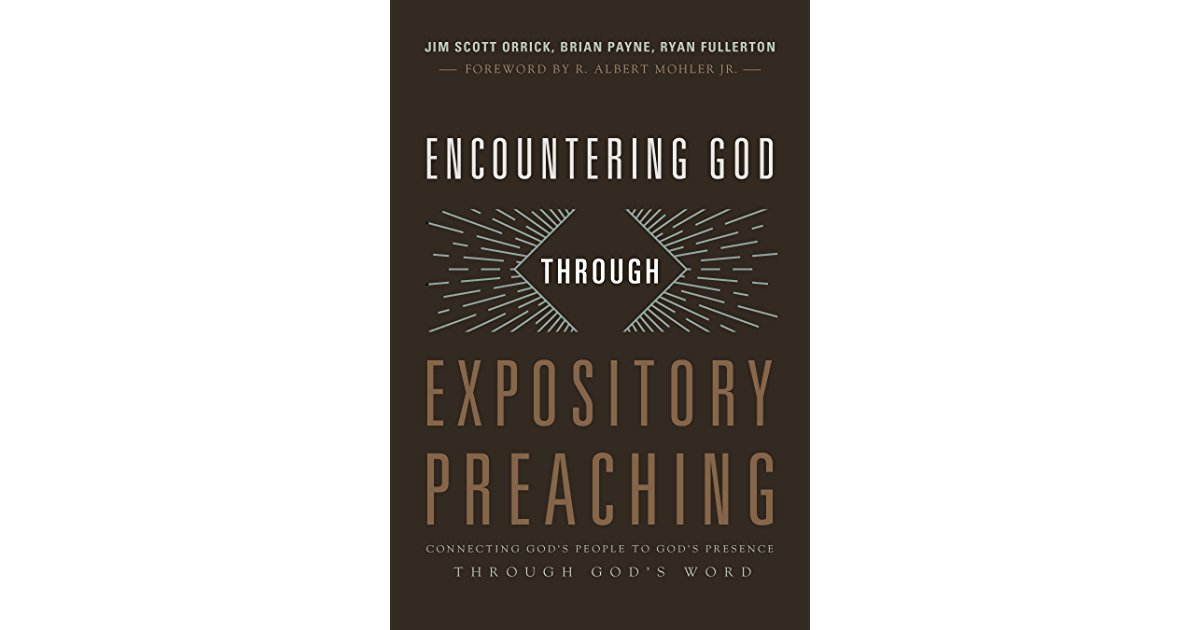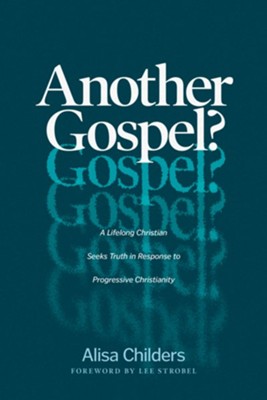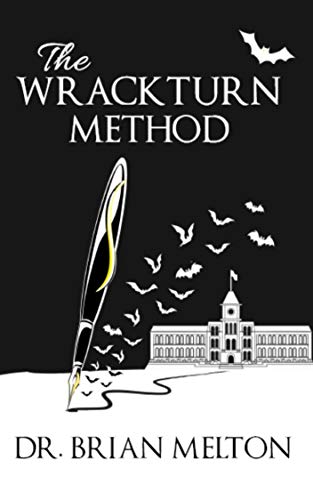By: Brian Chilton | November 6, 2017
 Orrick, Jim Scott, Brian Payne, and Ryan Fullerton. Encountering God through Expository Preaching: Connecting God’s People to God’s Presence. Nashville: B&H Academic, 2017. 224 pages. $19.99. ISBN: 978-1-4336-8412-8.
Orrick, Jim Scott, Brian Payne, and Ryan Fullerton. Encountering God through Expository Preaching: Connecting God’s People to God’s Presence. Nashville: B&H Academic, 2017. 224 pages. $19.99. ISBN: 978-1-4336-8412-8.
Summary
Orrick, Payne, and Fullerton co-authored a book that powerfully argues for the use of expository preaching in their book Encountering God through Expository Preaching (henceforth, EGTEP). Not only is the use of expository preaching promoted, the authors argue that it is the best form to stay true to the text and allows the people to experience God through the text rather than just the preacher’s opinions.
The book is divided into three parts. The first and longest part engages the work of the Holy Spirit in and through expository preaching, the man that is needed to preach expository messages effectively, and the text with which a person is engaging. In chapter one, the authors discuss the integrity of the man of God who brings the messages. The man of God must be a holy man (EGTEP, 3), a qualified man (EGTEP, 6), and a progressing man (EGTEP, 13)—that is, progressing in his skills of preaching. The authors provide a defense for expository preaching in the second chapter, arguing that the word is the “Lord’s energy to the world” (EGTEP, 23). The third and fourth chapters discuss why it is important for teachers and preachers to keep their lessons and sermons true to the context of the Scripture. The fifth chapter argues that preachers should preach messages through books of the Bible as there are personal, (EGTEP, 62), pastoral (EGTEP, 64), prophetic (EGTEP, 65), priestly (EGTEP, 67), preaching (EGTEP, 69), and practical (EGTEP, 71) benefits. In an odd twist, the authors argue that topical preaching can be useful if it is done in an expositional fashion. And, the eighth and ninth chapters round off the first part as expository preaching is shown to be imperative in allowing the Spirit to use the preacher’s messages in the most effective ways.
The second part discusses how the man of God must prepare to lead the congregants to experience God. The tenth chapter discusses the importance of delivery and how the preacher must continually improve his delivery style. The eleventh chapter argues that the man of God should practice how he publicly reads the Scripture—they argue that a preacher should slow down while reading through the text. The twelfth chapter discusses how the text fits in the overall scheme of the Bible and what the text truly says. The thirteenth chapter challenges the preacher to look at how the text is built by using a method of development. See if the text compares and contrasts, what the genre is, cause and effect methods, argumentation, division, and the like (EGTEP, 141). The fourteenth chapter asks the reader to consider the applications that could be made in the text.
The third and final section of the book describes the final preparation before delivering a message. The fifteenth chapter discusses delivery by reading from a manuscript, the sixteenth chapter discusses preaching from a basic outline, and the seventeenth chapter discusses how a preacher can deliver a message without notes.
Strengths/Weaknesses
The book persuasively argues for expository preaching. The authors provide several reasons why a preacher should preach in such a manner while even opening the door for topical messages, so long as they are done in an expositional manner that remains true to the text. I like how the authors present three ways in which a message can be delivered (with notes, limited notes, and without notes). Personally, I use limited notes to help guide me through a message and so that I stay on track with what God has given me to say.
The only potential weakness that I could find is that the authors should have spoken more to the various genres found in Scripture. Narrative is interpreted differently than poetry. Poetry is different than strict prophecy (although prophets often use poetry to bring forth their point). Prophecies are different than apocalyptic literature. Apocalyptic literature is different than law. Law is different than an epistle. While this topic may be beyond the scope of the authors’ intentions, it may be that they should have discussed this in greater detail.
Benefits
In a world where biblical illiteracy is growing at a rampant pace, there has never been a more pressing need for expository preaching than today. As far as this reviewer goes, there are three benefits to this book.
First, the book demonstrates well the need for expository preaching. Expository preaching keeps the main focus on the written word of God and less on personal opinion.
Second, the book teaches well the personal integrity needed for the man of God. All the preaching in the world will not amount to much if the man of God does not walk the walk. In addition, the man of God must continually improve his craft so that he preaches in a more polished fashion.
Finally, the book illustrates well the power of the Holy Spirit that is needed for a successful ministry. Without God’s involvement, no amount of preparation will be effective.
I highly recommend this book for preachers, teachers, and preaching and teaching hopefuls. This is a much-needed book in our time.
Rating: 5 stars all the way!!!
About the Author
 Brian Chilton is the founder of BellatorChristi.com and is the host of The Bellator Christi Podcast. He received his Master of Divinity in Theology from Liberty University (with high distinction); his Bachelor of Science in Religious Studies and Philosophy from Gardner-Webb University (with honors); and received certification in Christian Apologetics from Biola University. Brian is currently a student of the Ph.D. program in Theology and Apologetics at Liberty University. Brian is full member of the International Society of Christian Apologetics and the Christian Apologetics Alliance. Brian has been in the ministry for over 14 years and serves as the pastor of Huntsville Baptist Church in Yadkinville, North Carolina.
Brian Chilton is the founder of BellatorChristi.com and is the host of The Bellator Christi Podcast. He received his Master of Divinity in Theology from Liberty University (with high distinction); his Bachelor of Science in Religious Studies and Philosophy from Gardner-Webb University (with honors); and received certification in Christian Apologetics from Biola University. Brian is currently a student of the Ph.D. program in Theology and Apologetics at Liberty University. Brian is full member of the International Society of Christian Apologetics and the Christian Apologetics Alliance. Brian has been in the ministry for over 14 years and serves as the pastor of Huntsville Baptist Church in Yadkinville, North Carolina.
© 2017. BellatorChristi.com.





